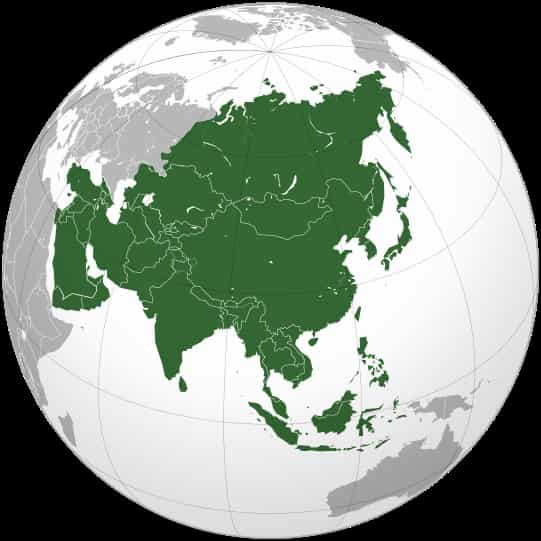New Office
Singapore, Hong Kong Court Family Offices

The authors of this article from Harneys examine what the Asian jurisdictions are doing to win the favours of family offices in Asia – now an important financial business segment.
What is being done in Hong Kong and Singapore to attract family offices to Hong Kong – rival jurisdictions that have been through challenging times over recent years, while also remaining vital financial markets in the region? Singapore has brought out a variable capital companies (VCC) regime, to attract wealth managers, for example, while Hong Kong still has an important stock market and location for initial public offerings – important liquidity events that wealth managers track.
Engaging with such issues is offshore law firm Harneys. Nicola Roberts, partner in Singapore, and James Granby, senior associate in Hong Kong, examine what is at stake.
The editors at this news service are pleased to share these views and invite readers to respond. The usual editorial disclaimers apply to the views of guest contributors. Email tom.burroughes@wealthbriefing.com
In recent years, ultra-high net worth families in Asia have been
focusing more sharply on succession planning and
inter-generational wealth management. The rise of family offices
is part of this trend, with the number of Asian single-family
offices increasing by 44 per cent from 2017 to 2019 alone.
Family offices are a promising growth area in the Asian wealth management industry. While, according to Credit Suisse, around 39 per cent of global wealth stems from Asia, a much smaller proportion of family offices are Asia-based, at around 19 per cent. This disparity can be explained by the fact that many UHNW individuals in the region are still first generation. What is clear, however, is that the number of family offices will continue to grow, bringing a huge opportunity for major Asian financial centres.
The governments of both Hong Kong and Singapore have sought to take advantage of this trend and to position their respective cities as the preeminent centre for family offices in Asia-Pacific. The two jurisdictions, each with their respective strengths, have signalled their desire to attract family offices and have enacted legislation to bolster their appeal in this respect.
On paper, Hong Kong might be considered as the stronger of these two contenders owing to its unique position as the gateway to China. The city regularly ranks among the top cities in the world for density of UHNW individuals, with over 9,500 in 2020. Add to this another 10,000 UHNW families elsewhere in the Greater Bay Area, and the potential for growth is obvious.
Since 2020, the Hong Kong government has introduced a series of measures and initiatives aimed at promoting growth in family offices. In November 2020, the Family Office Association Hong Kong, an independent family office industry body, was set up with support from the government. This was followed in June 2021 by the creation of a dedicated government team in the InvestHK department to promote Hong Kong as a family office hub. Recent legislative changes have also been designed to attract family offices, in particular the introduction of Limited Partnership Funds and changes to the taxation of offshore funds.
Most recently, in his budget speech on 23 February 2022, Finance Secretary Paul Chan announced tax concessions for eligible family investment entities managed by single family offices. While the government has not yet provided further detail on the scope of the concessions, expected to come into effect in 2022/23, the move underlines an ongoing commitment to attracting family offices to Hong Kong.
Singapore shares many of Hong Kong's strengths as a potential centre for family offices, including an established financial services industry, reputable legal system and top-tier access to professional services. Its government has also openly courted business from family offices considering setting up in Asia. The Singapore government established a Family Office Development Team in March 2019 in order to enhance the city's position as a family office hub, and this was followed by the launch of the Global Asia Family Office Circle by the Wealth Management Institute in 2021 with government support.
It remains to be seen how successful Hong Kong and Singapore will be in their respective attempts to become Asia's leading destination for family offices. Both cities, however, have governments that are willing to provide support for their growing family office industries, which have almost limitless potential for growth in the coming decade. The long-standing competition between the two cities, at least in this instance, is not zero-sum, and the safest prediction might be that in both places, family offices will multiply and become a prominent part of the wealth management business.
The prospect of future growth for family offices in Asia also offers opportunities to offshore professional service providers. Family funds are often set up in the Cayman Islands or the BVI, as both jurisdictions offer structures which facilitate succession planning. In particular, families often find that structures such as the BVI VISTA trust, Cayman STAR trust, and BVI or Cayman PTC structures are desirable because they allow the family to retain effective control of the structure. Offshore jurisdictions also score highly for preserving privacy and confidentiality, which can be important to UHNW families.
Offshore jurisdictions such as BVI and Cayman are also at the forefront of cutting-edge developments that may become more relevant to family offices in the future. These include the use of BVI VISTA trusts or Cayman foundation companies to invest in digital assets such as cryptocurrencies, or the use of SPAC structures, also known as “blank cheque” companies.
Family offices in Asia will continue to grow, and this is an exciting development for both Hong Kong and Singapore. The willingness of both governments to facilitate and promote such growth through legislation and other initiatives speaks volumes. Offshore structures will continue to be relevant to existing and new family offices in Asia due to their flexibility and capacity for innovation.
Article by Harneys.